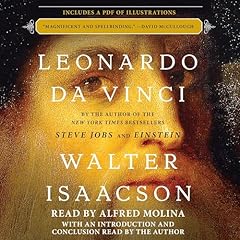
Doom
The Politics of Catastrophe
No se pudo agregar al carrito
Solo puedes tener X títulos en el carrito para realizar el pago.
Add to Cart failed.
Por favor prueba de nuevo más tarde
Error al Agregar a Lista de Deseos.
Por favor prueba de nuevo más tarde
Error al eliminar de la lista de deseos.
Por favor prueba de nuevo más tarde
Error al añadir a tu biblioteca
Por favor intenta de nuevo
Error al seguir el podcast
Intenta nuevamente
Error al dejar de seguir el podcast
Intenta nuevamente
$0.00 por los primeros 30 días
POR TIEMPO LIMITADO
Obtén 3 meses por US$0.99 al mes
La oferta termina el 21 de enero de 2026 11:59pm PT.
 Exclusivo para miembros Prime: ¿Nuevo en Audible? Obtén 2 audiolibros gratis con tu prueba.
Exclusivo para miembros Prime: ¿Nuevo en Audible? Obtén 2 audiolibros gratis con tu prueba.
Solo $0.99 al mes durante los primeros 3 meses de Audible Premium Plus.
1 bestseller o nuevo lanzamiento al mes, tuyo para siempre.
Escucha todo lo que quieras de entre miles de audiolibros, podcasts y Originals incluidos.
Se renueva automáticamente por US$14.95 al mes después de 3 meses. Cancela en cualquier momento.
Elige 1 audiolibro al mes de nuestra inigualable colección.
Escucha todo lo que quieras de entre miles de audiolibros, Originals y podcasts incluidos.
Accede a ofertas y descuentos exclusivos.
Premium Plus se renueva automáticamente por $14.95 al mes después de 30 días. Cancela en cualquier momento.
Compra ahora por $22.50
-
Narrado por:
-
Niall Ferguson
-
De:
-
Niall Ferguson
Setting the annus horribilis of 2020 in historical perspective, Niall Ferguson explains why we are getting worse, not better, at handling disasters.
Disasters are inherently hard to predict. Pandemics, like earthquakes, wildfires, financial crises. and wars, are not normally distributed; there is no cycle of history to help us anticipate the next catastrophe. But when disaster strikes, we ought to be better prepared than the Romans were when Vesuvius erupted, or medieval Italians when the Black Death struck. We have science on our side, after all.
Yet in 2020 the responses of many developed countries, including the United States, to a new virus from China were badly bungled. Why? Why did only a few Asian countries learn the right lessons from SARS and MERS? While populist leaders certainly performed poorly in the face of the COVID-19 pandemic, Niall Ferguson argues that more profound pathologies were at work--pathologies already visible in our responses to earlier disasters.
In books going back nearly twenty years, including Colossus, The Great Degeneration, and The Square and the Tower, Ferguson has studied the foibles of modern America, from imperial hubris to bureaucratic sclerosis and online fragmentation.
Drawing from multiple disciplines, including economics, cliodynamics, and network science, Doom offers not just a history but a general theory of disasters, showing why our ever more bureaucratic and complex systems are getting worse at handling them.
Doom is the lesson of history that this country--indeed the West as a whole--urgently needs to learn, if we want to handle the next crisis better, and to avoid the ultimate doom of irreversible decline.
* This audiobook includes a downloadable PDF of images and tables from the book.
Los oyentes también disfrutaron:




















Las personas que vieron esto también vieron:


















This is a rare instance where the author, who is an outstanding speaker, is also the narrator of his own book. Thank you! Wh
Excellent and insightful
Se ha producido un error. Vuelve a intentarlo dentro de unos minutos.
Superb, as usual.
Se ha producido un error. Vuelve a intentarlo dentro de unos minutos.
Great listen
Se ha producido un error. Vuelve a intentarlo dentro de unos minutos.
Well researched
Se ha producido un error. Vuelve a intentarlo dentro de unos minutos.
I enjoyed Niall’s review of the events of late 2019-2020 as even though these events where recent, key details could’ve easily been missed in the chaos of living through the pandemic.
Yet sometimes it felt as though the book was too heavily focused on Covid-19. Certainly this event was central to current political discourse but I fear that too many people are likely burned out of the pandemic.
All in all the book is worth a listen especially if you enjoy Ferguson’s work as I do. His unique style weaves popular culture, economics and political analysis into the dissection of historical events providing rich and thought provoking insights.
Historical Context
Se ha producido un error. Vuelve a intentarlo dentro de unos minutos.


